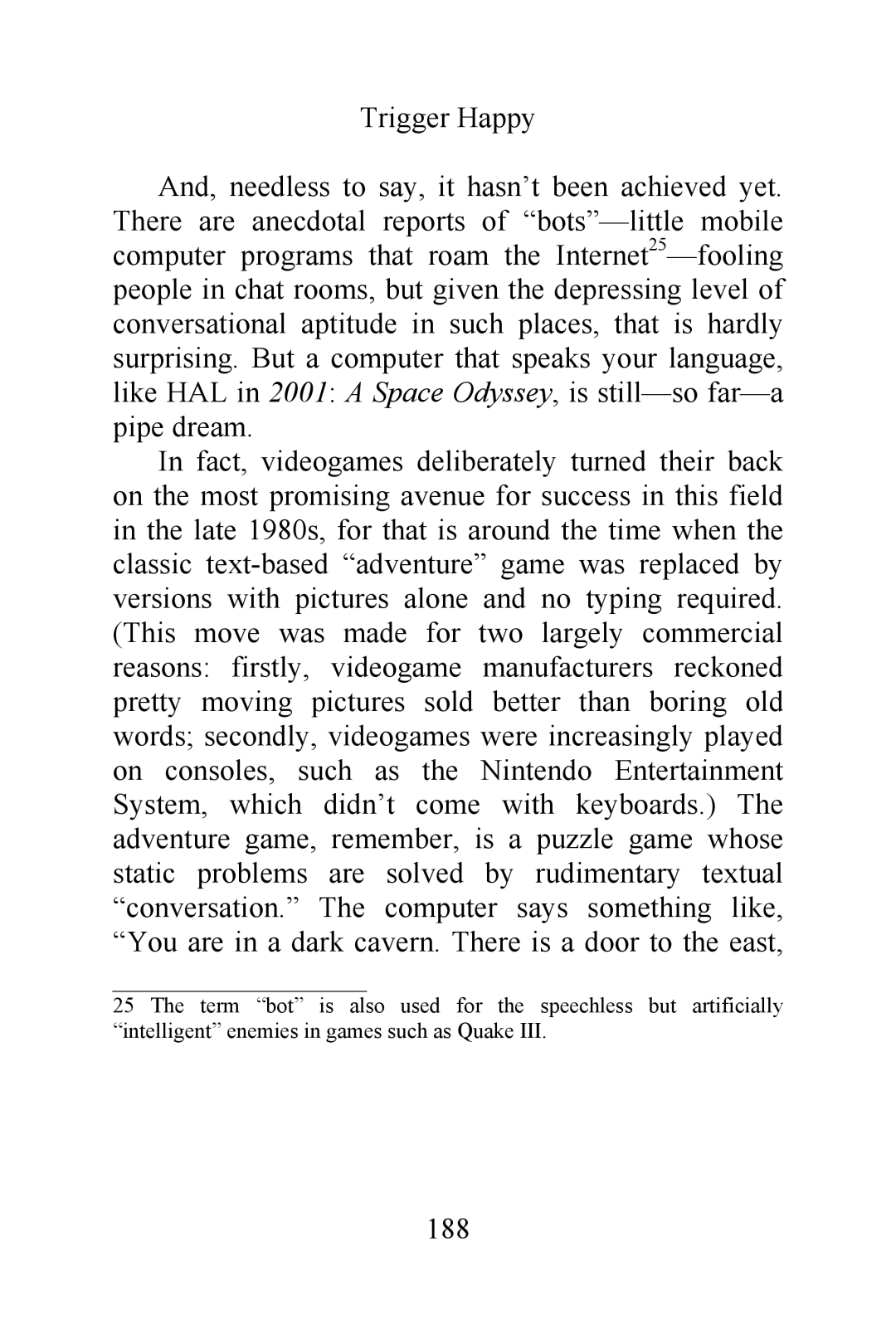Trigger Happy
And, needless to say, it hasn’t been achieved yet. There are anecdotal reports of “bots”—little mobile computer programs that roam the Internet25—fooling people in chat rooms, but given the depressing level of conversational aptitude in such places, that is hardly surprising. But a computer that speaks your language, like HAL in 2001: A Space Odyssey, is still—so far—a pipe dream.
In fact, videogames deliberately turned their back on the most promising avenue for success in this field in the late 1980s, for that is around the time when the classic text-based “adventure” game was replaced by versions with pictures alone and no typing required. (This move was made for two largely commercial reasons: firstly, videogame manufacturers reckoned pretty moving pictures sold better than boring old words; secondly, videogames were increasingly played on consoles, such as the Nintendo Entertainment System, which didn’t come with keyboards.) The adventure game, remember, is a puzzle game whose static problems are solved by rudimentary textual “conversation.” The computer says something like, “You are in a dark cavern. There is a door to the east,
_________________
25 The term “bot” is also used for the speechless but artificially “intelligent” enemies in games such as Quake III.
188
